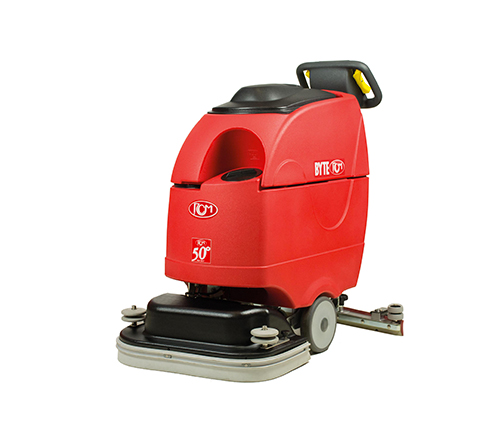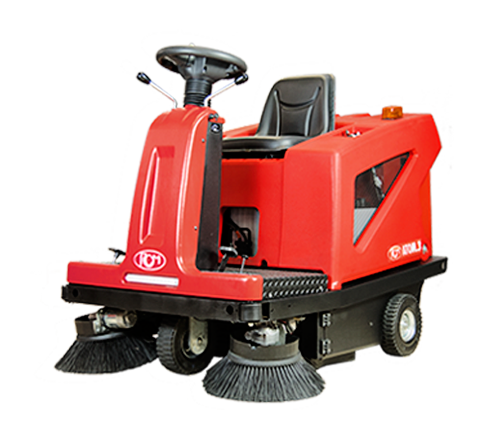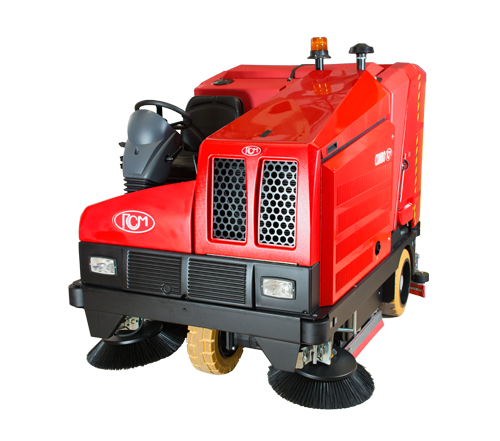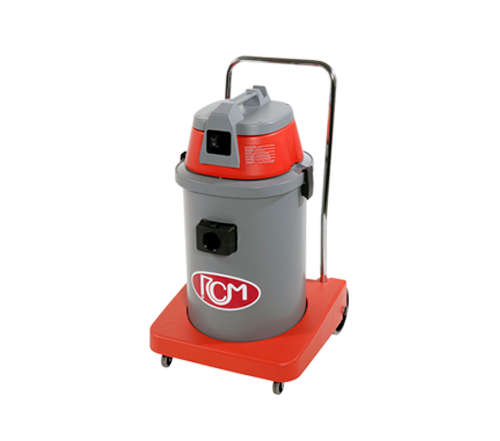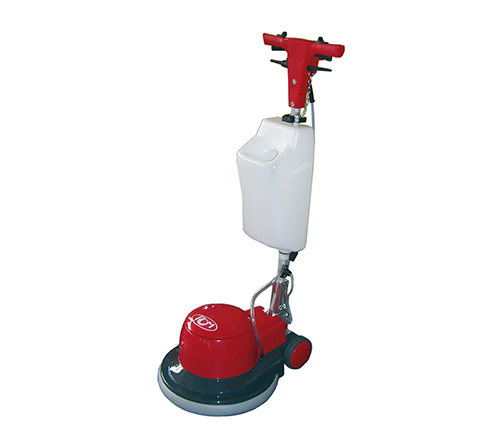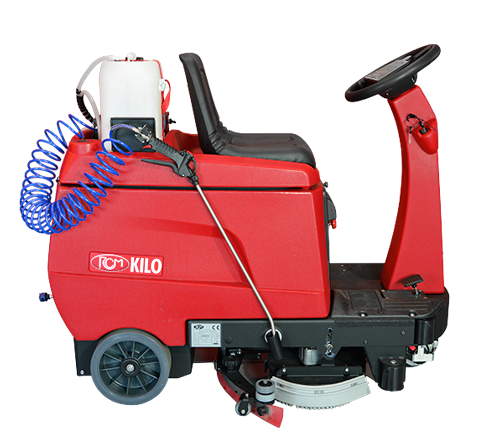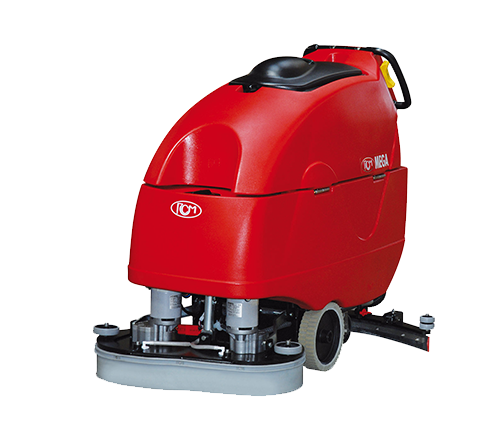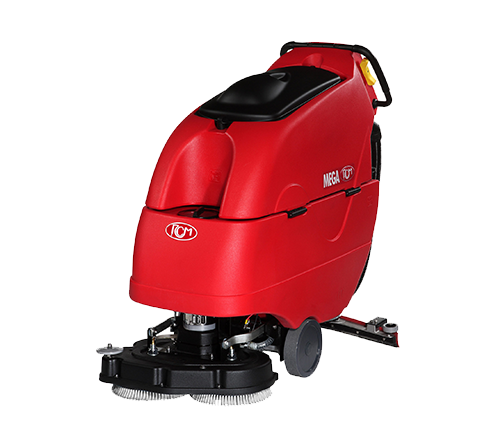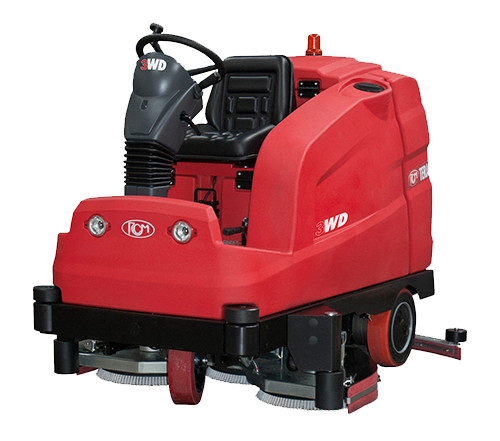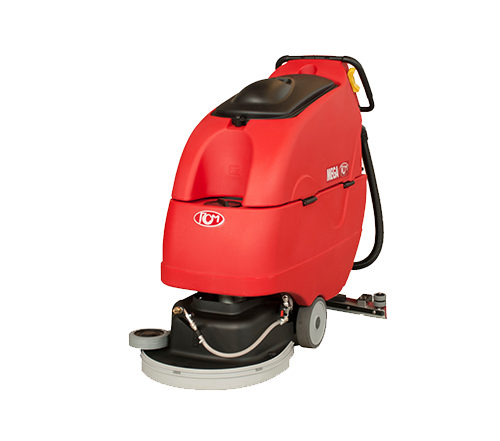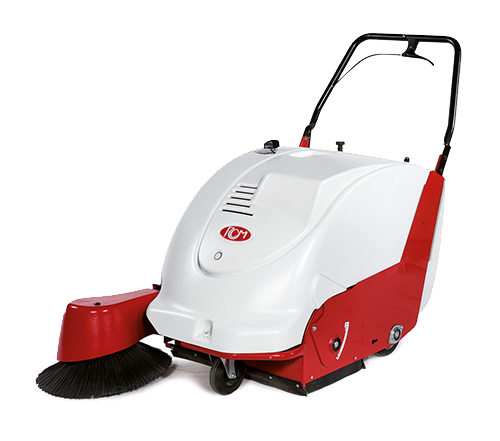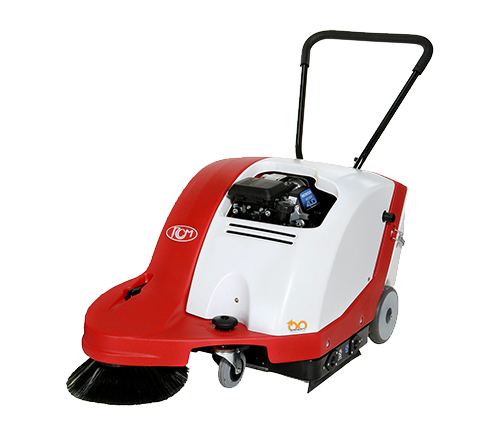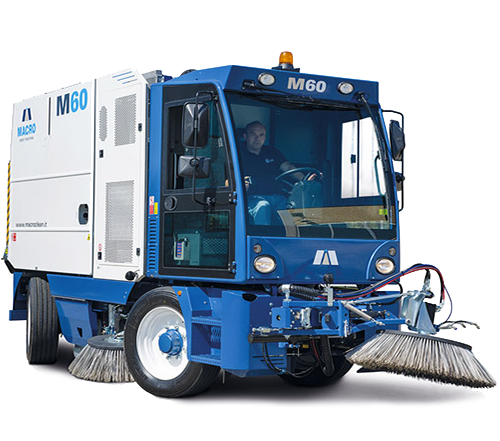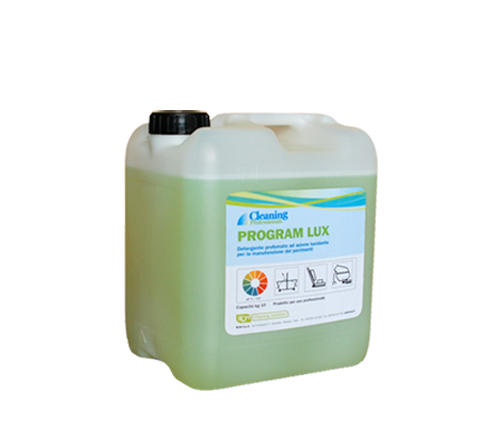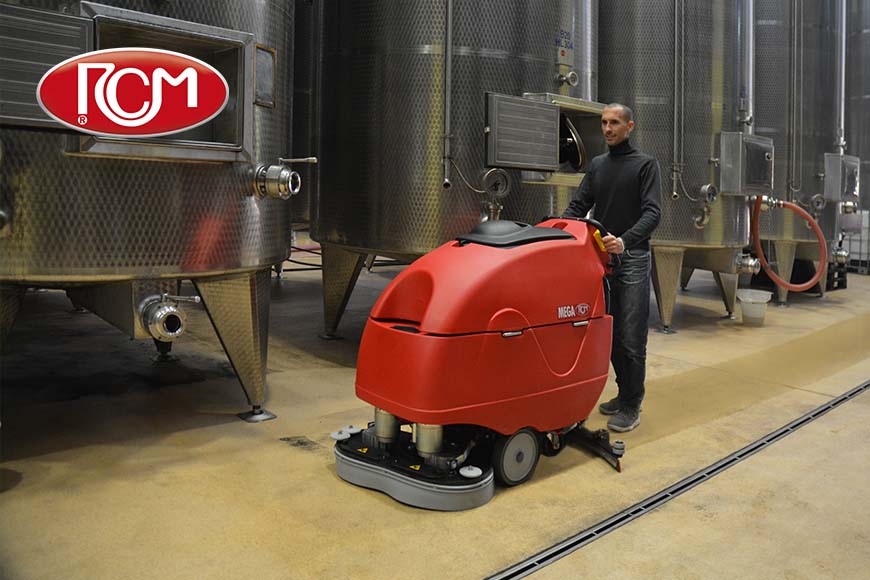Scrubber dryers for resin floors: A guide to perfect cleaning without damaging the surface
Resin floors, made from epoxy or polyurethane resins, are valued for their high resistance to water, dirt, and their durability over time. They withstand heavy use and mechanical stress very well. To clean these surfaces, it is highly suggested to use a professional scrubber dryer, either a walking-behind scrubber dryer or a ride-on scrubber dryer, as these machines are ideal for removing liquid dirt, stains, grease residues, or dust. Because of their smooth and waterproof surfaces, resin floors get benefit from the action of automatic cleaning machines.
Epoxy Resins
– Characteristics: Epoxy resins are one of the most used materials for industrial flooring. They are highly resistant to impacts, abrasion, chemicals, and corrosive substances. They can also have different finishing, glossy or satin, which are generally easy to clean.
– Applications: Suitable for industrial environments, warehouses, production areas, parking lots, hospitals, and showrooms.
– Advantages: High chemical and mechanical resistance, waterproof, excellent adhesion to the surface, and possible anti-slip finishing.
Polyurethane Resins
– Characteristics: Polyurethane resins are highly flexible and resilient, especially against weather elements and abrasion. Compared to epoxy, they are more flexible, therefore more resistant to deformation and cracking.
– Applications: Often used in outdoor and indoor areas, even in case of temperature fluctuations, such as outdoor parking lots, surfaces subject to expansion, or industrial floors exposed to sunlight.
– Advantages: UV resistance, durability in case of temperature changes and mechanical stress, resistance to water and harsh cleaning agents.
Recommended tools for cleaning epoxy and polyurethane resin surfaces
These types of flooring require specific care to avoid damage and maintain their characteristic appearance. Here is a guide to the most suitable RCM accessories for maintaining resin floors:
Epoxy Resins
– Detergent: It is essential to use neutral or slightly alkaline detergents. Acid or overly aggressive cleaners may damage the resin, especially if the surface is glossy.
– Nylon or PPL (polypropylene) Disc Brushes: Suitable for daily cleaning and glossy floors. Nylon is softer and gentler, while PPL is wear-resistant.
– Abrasive Pads: The red pad is ideal for regular maintenance, while the white pad is suitable for polishing or very delicate cleaning tasks.
– Notes: Avoid highly abrasive brushes or aggressive solvent-based cleaners that could harm the surface.
Polyurethane Resins
– Detergent: Neutral or slightly alkaline detergents are preferable. Avoid very aggressive cleaners, although this resin type is more resistant than epoxy. For tougher dirt, mild alkaline detergents may be used.
– PPL Roller Brushes: Suitable for deeper cleaning, especially in environments with coarse dirt.
– Abrasive Pads: The red pad can be used for light dirt removal or regular maintenance, while the green pad can be used for more stubborn dirt.
– Notes Polyurethane resins can resist more to abrasion, slightly more abrasive brushes or pads can be used.
ATTENTION: There are various types of resins and finishes; to find the ideal balance between the mechanical action of brushes/pads and the chemical action of the detergent, it is always recommended to test a small area of the floor first.
Using the recommended tools ensures effective cleaning while preserving the lifetime and appearance of resin surfaces, preventing potential repairing costs.



